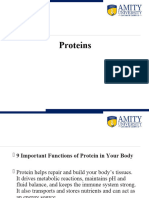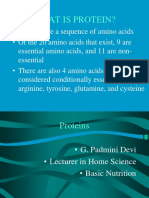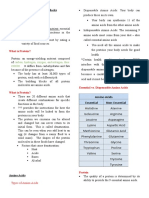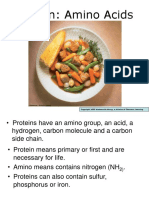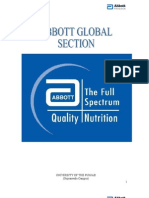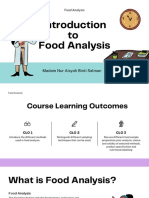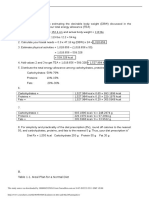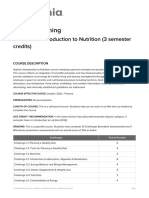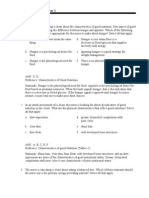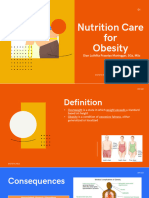0% found this document useful (0 votes)
36 views19 pagesProtein Functions
Proteins are essential macromolecules that perform various functions including growth and maintenance, catalyzing biochemical reactions as enzymes, acting as hormones, providing structural support, regulating pH, balancing fluids, bolstering immune health, transporting nutrients, and supplying energy. They are composed of amino acids and play a critical role in nearly all biological processes. A high-protein diet can increase protein requirements and may lead to weight loss through fat burning when carbohydrates are restricted.
Uploaded by
Samia Ayessa BelleCopyright
© © All Rights Reserved
We take content rights seriously. If you suspect this is your content, claim it here.
Available Formats
Download as PPTX, PDF, TXT or read online on Scribd
0% found this document useful (0 votes)
36 views19 pagesProtein Functions
Proteins are essential macromolecules that perform various functions including growth and maintenance, catalyzing biochemical reactions as enzymes, acting as hormones, providing structural support, regulating pH, balancing fluids, bolstering immune health, transporting nutrients, and supplying energy. They are composed of amino acids and play a critical role in nearly all biological processes. A high-protein diet can increase protein requirements and may lead to weight loss through fat burning when carbohydrates are restricted.
Uploaded by
Samia Ayessa BelleCopyright
© © All Rights Reserved
We take content rights seriously. If you suspect this is your content, claim it here.
Available Formats
Download as PPTX, PDF, TXT or read online on Scribd
/ 19

